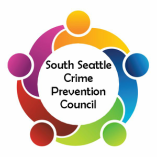Emergency Readiness
We all need to be prepared for natural and man-made disasters which may temporarily cause us to leave our homes. What follows are suggestions the SSCPC believes will better prepare for the temporary evacuation of your home:
Practices & Procedures
Suggested Contents for a Readiness/"Go" Bag
Suggested First Aid Kit Contents (in case of Home Evacuation)
Practices & Procedures
- Gather important documents--passports, IDs, Soc. Sec. cards, insurance documents, etc.--for each family member
- Have medical history and medical consent forms for each member of your family
- Have personal contact info, emergency services numbers for doctors, veterinarians, road assistance, etc. handy
- Store one gallon of water (for drinking & sanitization), per person, per day, for 3 days--if possible, store water in car
- Also have water packed for readiness/"go" bags [see description below]
- Ask an out-of-area friend or relative to be the emergency contact person after a disaster
- Using the above information, create emergency response cards for each family member (especially kids)
- Create at least one first aid kit [contents to be described below]
- Designate one adult to get first aid kit when evacuating home
- Ensure you have extra home and vehicle keys
- Choose a location where each family member will meet after a disaster in case you are separated from each other
- Practice evacuating your home and meeting at your designated reunification location
- Practice/drill family members in stop-drop-roll (fire safety) and duck-cover-hold (earthquake safety) techniques
- Teach family members how to use a fire extinguisher
- Create a readiness/"go" bag for each family member as well as one for pets [contents to be described below]
- Keep recent photos of family members (yourself, kids, pets, spouse) in "go" bags for re-identification purposes
- Put each child's emergency response card in her/his "go" bag
Suggested Contents for a Readiness/"Go" Bag
- Each bag should be brightly colored and/or marked with high-visibility tape
- Each bag should be marked with person's name
- Each bag should be stowed under a bed or a near a bedroom door for quick access
- Each bag should contain photos of that person as well as her/his family members
- Paper, pencil, and pen--kept in resealable plastic bag
- Small flashlight (preferably hand-crank/solar-powered) and batteries--kept in resealable bag
- One roll of toilet paper--kept in resealable plastic bag
- At least 6 empty waterproof bags (for waste disposable)
- Medications--enough for three days
- Eye glasses; hearing aids and hearing aid batteries
- Dust mask
- Small bottle of hand sanitizer
- Toothbrush, dental floss, toothpaste, and collapsible cup
- Enough high-protein energy bars, packets of nuts, crackers, packaged cheese, and portable dry food for three days
- First Aid/Mylar blanket (prepackaged) and sleeping bag
- One pair of closed-toe shoes; two pairs of socks
- Underwear, three shirts (at least one with full sleeves), two pair of pants, two sweaters, and a foldable rain-proof jacket
- Emergency whistle
- An infant's bag has: clothes, diapers, baby food/formula, moist towelettes, baby powder, rash ointment, etc. for 3 days
- One designated adult's bag should contain a small fire extinguisher
- One designated adult's bag should contain a crescent and pipe wrenches to turn off gas and water lines
- One designated adult's bag should contain a can opener
- One designated adult's bag should contain portable radio (hand-crank/solar) and batteries--kept in resealable bag
- Each adult's bag should contain a cell phone with a solar-powered, hand-crank, and/or car battery-powered inverter
- Each adult's bag should contain a basic multi-tool pocket knife/Swiss Army knife
- Each adult's bag should contain a pair of heavy-duty work gloves
- Each adult's bag should contain a foldable local map and compass
- Each adult's bag should contain candles and waterproof matches (kept in resealable plastic bag)
- Each adult's bag should contain paper (in small bills) and coin money--ATMs may not be available
- Each adult's bag should have at least six 10 ounce bottles of water
- Each child's bag should have at least 3 10 ounce bottles of water
- Each child's bag should have activities (small toys, cards, games, puzzles) to occupy attention
- Pet bags should have at least six 10 ounce bottles of water
- Pet bags should contain can opener and pet food and treats for three days
- Pet bags should contain prepackaged first aid kits for animals
Suggested First Aid Kit Contents (in case of Home Evacuation)
- First aid instruction manual/card
- Copies of medical conditions/histories cards for family members
- Aspirin
- Non-aspirin pain relief (acetaminophen or ibuprofen)
- Disposable latex or other sterile gloves
- Sterile dressings; sterile gauze pads; roll of sterile gauze
- Cotton balls; cotton-tipped swabs (such as Q-Tips)
- Absorbent compress dressings/sanitary napkins
- Medical adhesive tape
- 30 adhesive bandages in a variety of sizes
- Butterfly wound closure bandages
- Insect bite swabs
- Epi-pen (to delivered measured dose of epinephrine/adrenaline)
- Breathing barrier/CPR mask (may be obtained at local Red Cross)
- Bandage scissors
- A pair of sharp-edged tweezers
- Sewing needle or safety pins (for splinter removal)
- Rolled bandages in 3- and 4-inch widths
- Ace bandage (for minor joint sprains)
- Two triangular bandages (may be used as a sling)
- Antiseptic hand cleanser/ hand sanitizer
- Alcohol wipes; antiseptic wipes; small bottle of rubbing alcohol
- Antiseptic cream/ointment, such as Neosporin
- Antiseptic solution such as hydrogen peroxide (disinfectant, mouth wash, etc.)
- Triple-antibiotic ointment; antibiotic towelettes
- Burn ointment
- Hydrocortisone ointment/cream
- Aloe Vera gel
- Calamine lotion
- Petroleum jelly or other lubricant
- Soap or other cleansing agent (disposable cleansing wipes, for example)
- Eye-wash solution
- Tooth preservation kit/sterile balanced saline solution (BSS)
- Digital thermometer
- Instant cold packs
- Two tongue depressors/popsicle sticks (for use as finger splints)
- First Aid blanket (aka space or Mylar blanket)
